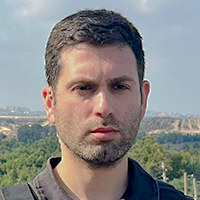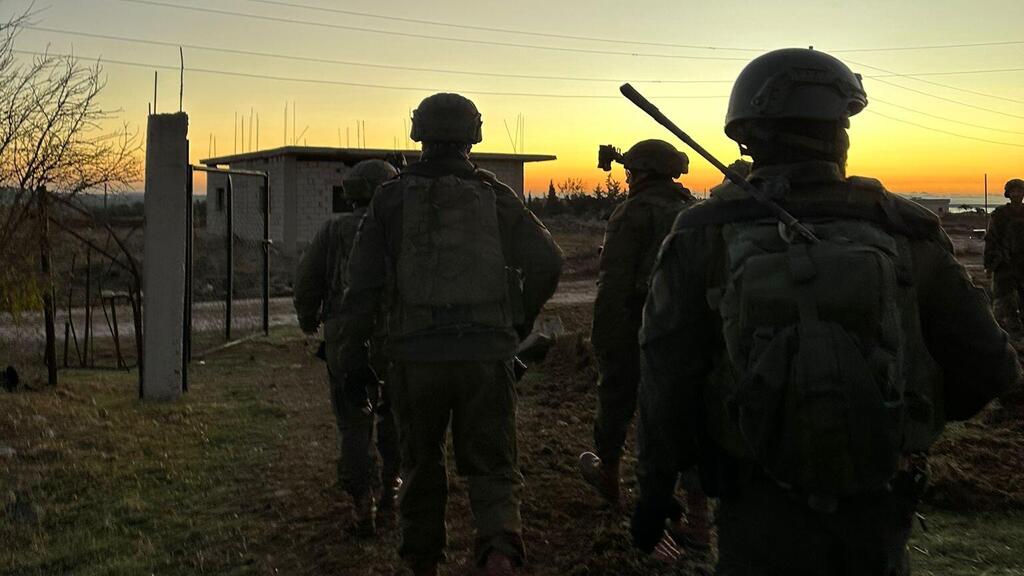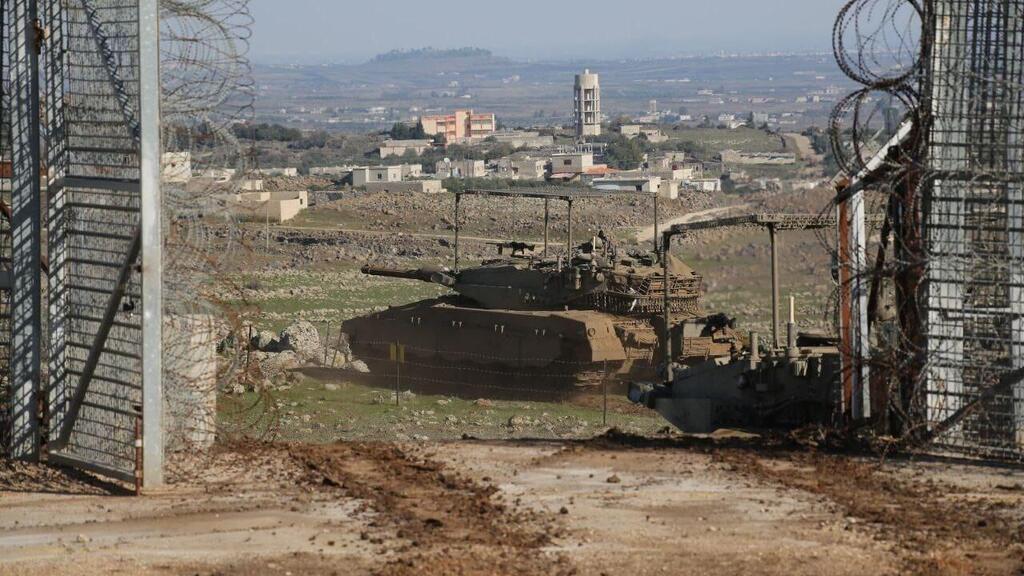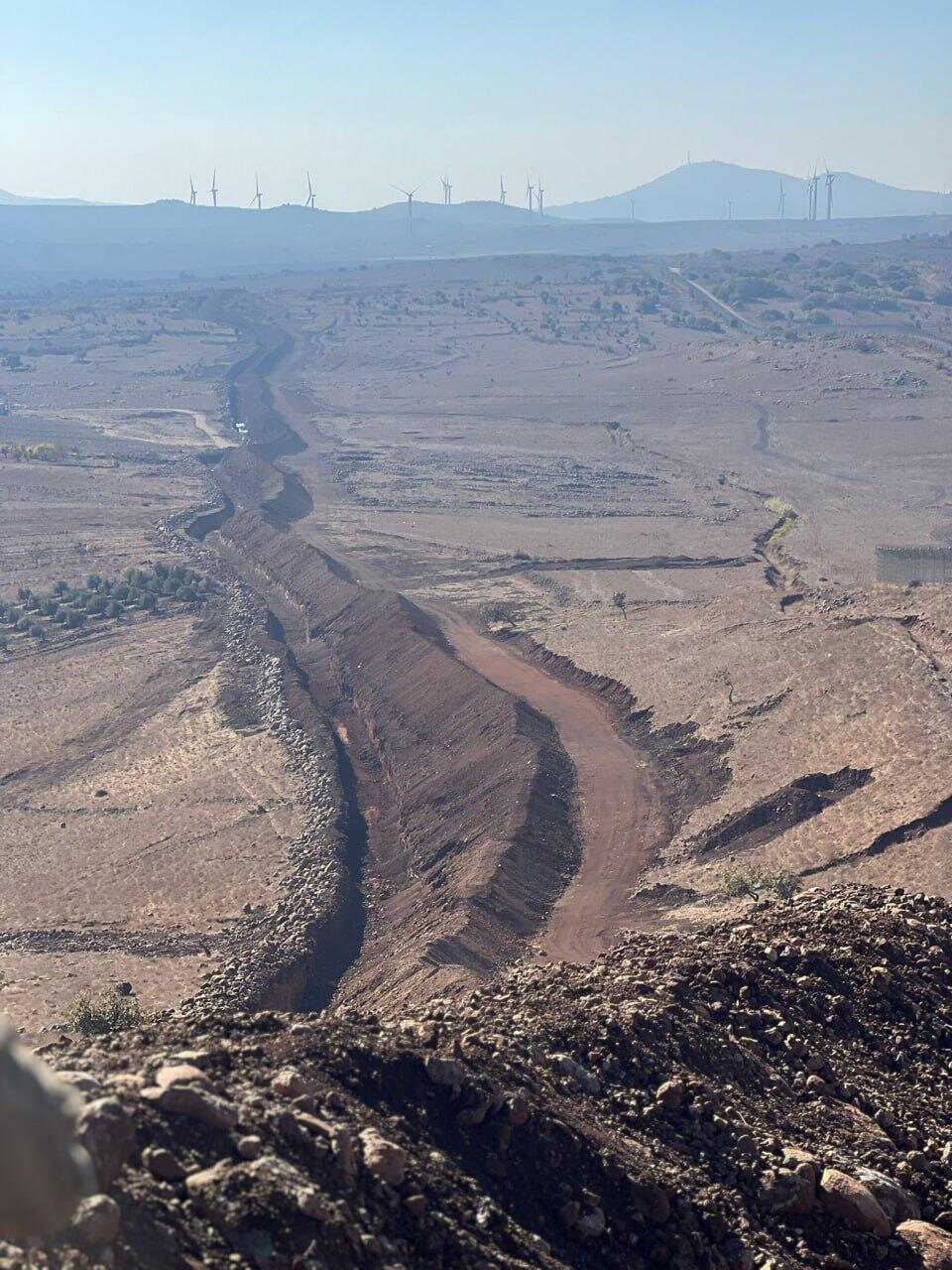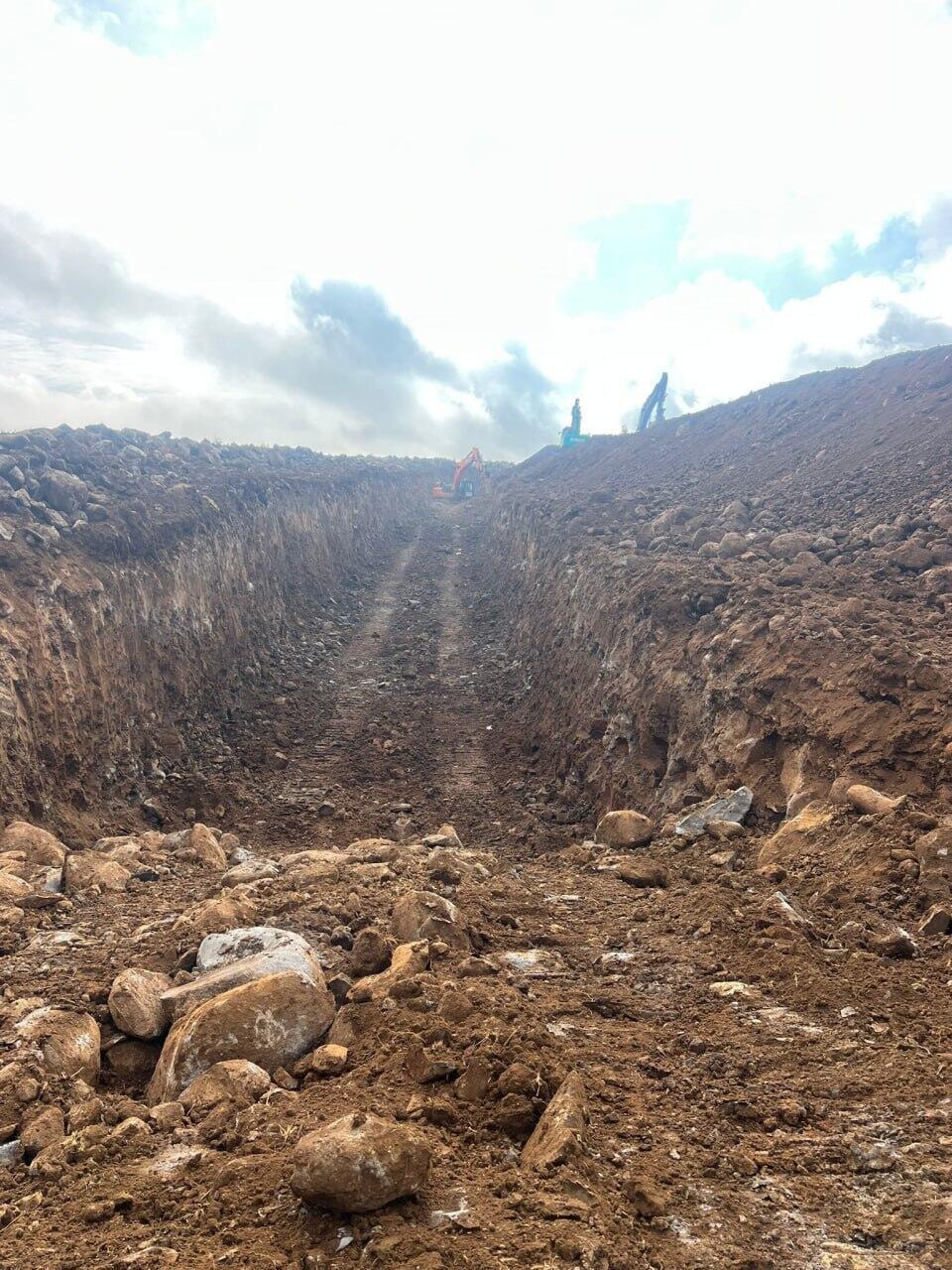Getting your Trinity Audio player ready...
The IDF is accelerating its "New East" project and adding new combat engineering elements along the international border in the Golan Heights to prevent the scenario of armed terrorists infiltrating Israel.
The 210th Division’s engineering unit, which oversees the Golan Heights sector, mobilized additional work teams from other regions in recent days to expedite the plan that began even before the start of the war in Gaza – with the goal of disrupting vehicle-mounted incursions using light off-road vehicles.
Teams are operating throughout the week, sometimes at night, and, following the fall of Bashar Assad’s regime and the takeover of the Syrian Golan by unaffiliated armed rebels, the work teams are also secured by deployed IDF forces in the buffer zone over the last week.
Tactical combat engineering lessons learned partly from how Hamas' Nukhba terrorists’ breached the western Negev are being applied in the Golan.
The work includes new minefields, deploying explosive charges and digging deep trenches. The IDF is prioritizing fortifications in areas closer to threatened settlements in the area and sectors with limited visibility, such as the hilly northern Golan or the rocky Wadi ar Ruqqad in the south.
Some operations involve engineering explosives to give the buffer zone near the border a "facelift" not seen since the 1974 cease-fire agreement with Syria.
"We've also leased civilian equipment and dozens of bulldozers and excavators are working swiftly and efficiently. It's a dynamic border obstacle with components tailored to the threat," one of the division’s officers said on Tuesday.
The morning after Assad's regime fell, the IDF entered the buffer zone. According to foreign reports, tanks and infantry forces were stationed along the Golan border’s Alpha Line. That night, IDF fighter jets reportedly carried out waves of strikes around Damascus, targeting advanced weapon systems and arms production facilities to prevent them from falling into rebel hands. A chemical weapons depot in Syria was also targeted.
The IDF stressed at the time that "the IDF does not intervene in events taking place in Syria. The IDF will continue to operate as necessary to maintain the buffer zone and protect the State of Israel and its citizens." Strikes in Syria continued at the same time and the IDF prevented arms smuggling into Lebanon.
After special forces operatives crossed the border and seized the highest Mount Hermon peak – for the first time in over 50 years – the military bolstered artillery and tank forces in the Golan and the buffer zone, as well as at key Syrian control points near the border. Syrian army posts in the Golan were abandoned and the IDF is monitoring the remaining weaponry in the area.
The Syrian opposition-affiliated Voice of the Capital news outlet claimed that "Israel is systematically destroying all brigades and battalions of the previous regime in southern Syria, directly targeting all air defense systems, missile depots and development and production facilities.
Get the Ynetnews app on your smartphone: Google Play: https://bit.ly/4eJ37pE | Apple App Store: https://bit.ly/3ZL7iNv
“The targets include any site that participated in, produced or developed weapons that could threaten Israel," according to the report.
Assad’s regime developed various capabilities over the years with support from Russia, Iran and Hezbollah. Now, with the rebels' takeover, all its assets could fall into their hands and eventually be directed against Israel. The rebel groups are diverse and unpredictable, making weapons like chemical arms in the hands of extremist Sunni Islamic rebels a serious risk.



